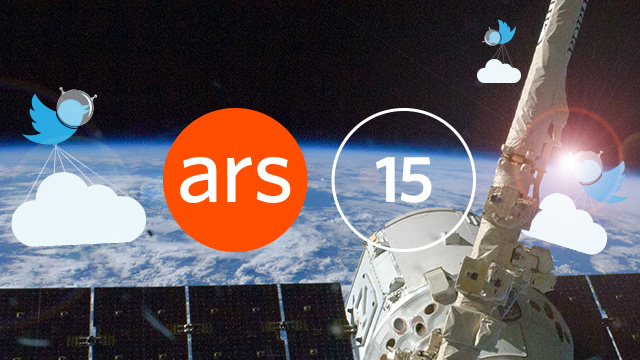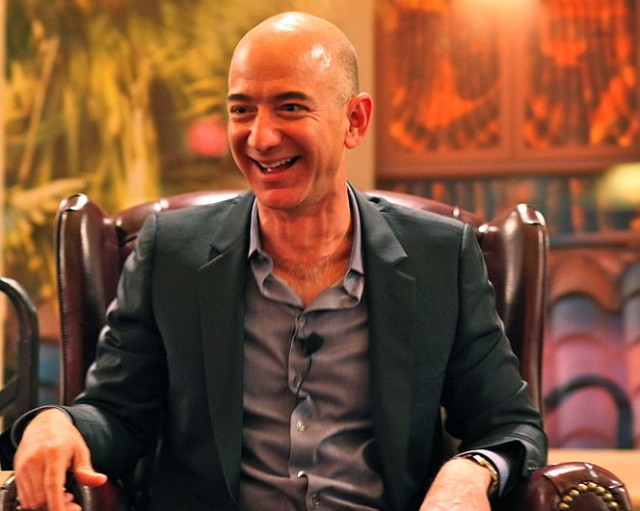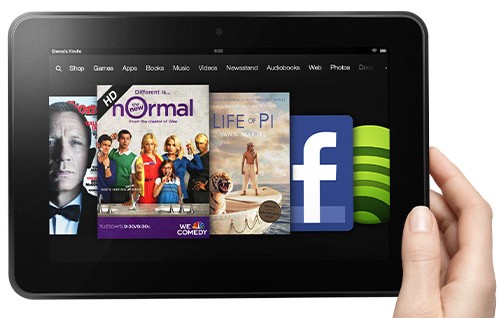
On the occasion of Ars Technica's 15th anniversary, we decided to bring you a series of articles on the most disruptive companies, technologies, and people we've covered in our time on the Internet since June 1998. We begin with the tales of three companies—Amazon, Twitter, and SpaceX—that rebelled against the established order and changed technology for the better.
While Amazon dominated online retail and practically invented what we now call cloud computing, Twitter took advantage of the open Internet to create the most free-wheeling social network and become a tool for social change. SpaceX, meanwhile, has shown us that we may end up looking toward private industry—rather than NASA—to take humans deeper into space.
We'll soon shift to the most disruptive technologies and people of Ars' 15 years, but today's focus is all on the companies that became tech rebels. Let's head back to the mid-'90s and start with the elder statesmen here: Amazon.
Reinventing retail and inventing the “cloud”

In July of 1995, one year after Amazon was incorporated, the company sold its first book: Fluid Concepts & Creative Analogies: Computer Models of the Fundamental Mechanisms of Thought.
So began the inexorable rise of a company that would show the world what "Internet-scale" really means. Amazon has had an incredible impact on the purchasing habits of consumers, making it easy to get almost any kind of product for a reasonable price while helping people who visit brick-and-mortar retail stores become more savvy shoppers. I hardly ever buy anything in a physical store without first whipping out my phone, checking the price on Amazon, and (just as importantly) reading customer reviews to find out if the product is worth buying at all.
Despite getting its start in the distribution of physical goods, Amazon impressed by anticipating the shift toward digital products. Amazon debuted the Kindle in 2007 before most people realized they would want to read electronic books on a handheld device. Today, Amazon is one of the biggest sellers of not only e-books but digital music and video as well. Consumers who don't own any Amazon devices and those who have either a Kindle e-reader or Kindle Fire tablet all take advantage of this online marketplace.

Over the years, Amazon built one of the most extensive and efficient networks of data centers in the world. Obviously, this was necessary to support one of the Internet's most highly visited websites and to manage goods and shipping at its many retail centers. Amazon became one of the most effective technology vendors on the planet, but for a long time it had only one customer—itself. So instead of keeping all its technology advantages in-house, the company unveiled Amazon Web Services (AWS) in 2006. This allowed anyone with a credit card to access Amazon's massive and highly efficient IT infrastructure.
The advent of AWS (and, in particular, the Amazon Elastic Compute Cloud) was the key moment in the business world's ongoing shift from physical servers operated on-premises to virtual computing resources accessed via the "cloud." Amazon helped IT customers rebel against traditional hardware vendors by letting them buy only as much computing horsepower as they need, when they need it, instead of stocking up on servers and storage with the risk of under- or over-buying. Need a supercomputer, but only a few times a year? Use Amazon.
An entire generation of businesses is being built on top of Amazon's servers. Amazon frees these companies from having to build their own physical data centers, letting each user of Amazon bring value to the market by creating innovative software. Witness Dropbox, an online storage company that makes it easy for tens of millions of consumers to sync data across all of their devices. Dropbox doesn't store any of its customers' data on its own servers. Instead, Dropbox uses Amazon's Simple Storage Service. Outages at Amazon can disrupt many websites because of AWS's ubiquity, but the Amazon cloud's overall impact has surely been a net positive.
It’s so… easy… to buy!
To get some more thoughts on how Amazon has changed people's lives, we polled the Ars staff:
Senior Reviews Editor Lee Hutchinson:
Amazon—specifically Amazon Prime—has totally destroyed my sense of propriety in what should and shouldn't be shipped through UPS and how much shipping is supposed to cost. Dried goods? Buy it from Amazon, get it in two days. Furniture? Buy it from Amazon, get it in two days. Kitchen utensils? Amazon, two days. 300 lbs of home theater gear? Amazon. Two days. I doubt I'll enter a brick and mortar store ever again unless I have to. The instant Amazon starts offering groceries in my area, I'll shift over to that and I'll literally never have to leave the house to shop for anything.
Amazon to me is less of a tech rebel and more of a financial rebel.
Disruptive? It's downright life-changing. It's obviously not Amazon providing the mechanism of transport—the "disruptiveness" of it all would be impossible without the underlying massive system of UPS and FedEx in place—but, man, once I quit having to worry about $10 here for shipping and $15 there... well, let's just say that Amazon has provided a ridiculously high percentage of my physical goods in the past couple years.
Associate Writer Casey Johnston:
Amazon has done more than any company to bridge the gap between online shopping and regular retail shopping. Amazon Prime is my favorite feature of theirs—it makes acquiring stuff I need, even grocery-type things, very, very low-effort. I suppose the ability to get stuff quickly would be marginally less useful if I didn't have the reviews to give me a rough idea of how good it is. But the fact that I can get something and send it back within a week if I don't like it, pretty much from my own home, is massively convenient.
Senior Science Editor John Timmer:
Amazon to me is less of a tech rebel and more of a financial rebel. The company just keeps things profitable enough so that nobody panics, then uses the relative freedom that allows to build market share, buy competitors, etc. And it's aggressively moved into electronic retailing and built a device/content ecosystem. The idea for a while was that, at any time it wants, it could tweak everything slightly and the profits would just start pouring in. But it's been years, and the company doesn't seem to be interested in doing that.
Managing Editor Eric Bangeman
One way Amazon has been a rebel, especially as a publicly traded company, is its relentless determination to grow and expand its reach at the expense of profits. If I were a shareholder, I'd like to see bigger profits, a higher stock price, and dividends. But Amazon has really been focused on making the customer experience better and finding ways to monetize consumers' desires for ever more convenience. If someone would have told me 10 years ago I'd happily pay $75 a year to get free shipping on products, I would have been skeptical. Now I'm a dedicated Amazon Prime customer who thinks nothing about ordering razor blades and AA batteries even though I could walk to the Walgreens three blocks away and get them there.
Security Editor Dan Goodin:
I buy 10 or 20 albums per year through the service. I probably buy two to four gifts for out-of-town family members per year. But I still like and support local merchants, and I'm not a big fan of using credit cards, either. So I still use brick-and-mortar stores for the vast majority of my purchases. I've never used any of Amazon's cloud services. Too bad, because I hear they're great.
Senior Business Editor Cyrus Farivar:
Amazon Prime is pretty flipping great. Flat-rate shipping without having to think about it! Yes! I've never used their TV offerings, even though I get them included.
“A charitable organization”
As John Timmer and Eric Bangeman noted, Amazon keeps growing without becoming massively profitable. In its most recent quarterly earnings, Amazon announced a 22 percent increase in sales to $16.07 billion and a year-over-year decline in net income from $130 million to $82 million. That's a profit margin of only one-half of one percent.Amazon "trained its investors" not to expect huge profits, and its stock price has kept rising. Slate business and economics writer Matthew Yglesias humorously observed that "Amazon, as best I can tell, is a charitable organization being run by elements of the investment community for the benefit of consumers."
Amazon may not be able to avoid high profit margins forever. Even if Amazon keeps operating its retail business at near-break-even margins, Amazon Web Services is believed to be a $2 billion-dollar-a-year revenue generator. Morgan Stanley research predicts it will expand to $24 billion by 2022.
Competitors in the IT industry are worried. Executives at EMC-owned VMware have expressed dismay at the challenge posed by "a company that sells books." But Amazon stopped being just a bookseller many years ago, and most of us can be thankful for that.
reader comments
77